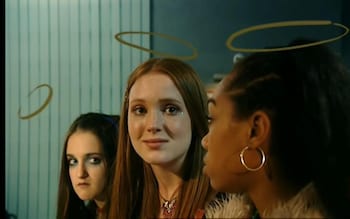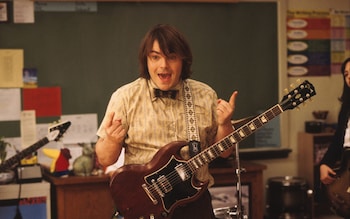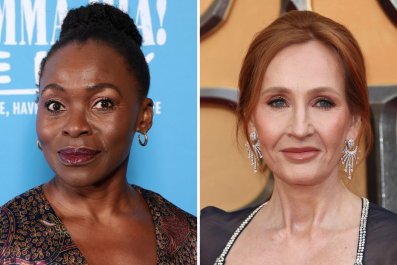Ask any television critic or historian what series had a seismic impact on the landscape of TV, and they'll all point to one drama series: The Sopranos. The HBO series, which debuted on January 10, 1999, is credited with elevating what a drama series could be. Put simply, it made the format cinematic.
The series about Tony Soprano, a brute New Jersey mob boss struggling with personal problems that lead him to seek therapy, introduced the world to the late actor James Gandolfini and made the show's creator, David Chase, an auteur in his own right.
Over the course of eight years and six seasons, audiences followed the saga of this unique mob boss, capturing the public's attention and elevating our own expectations of what TV could do. Without The Sopranos, there would be no Mad Men, Breaking Bad or Succession.
And now Oscar-winning documentarian Alex Gibney is turning his attention to the legacy of the series in Max's new two-part documentary Wise Guy: David Chase and The Sopranos (September 7). "I watched it from the first season. I was riveted by it," Gibney told Newsweek's Parting Shot podcast. "It was definitely my kind of show. It was dark, it was funny. It was about the kind of corruption of American commercial culture."
Below is an edited and condensed version of the conversation. To listen to the full chat, subscribe to the Parting Shot podcast on Apple Podcasts, Spotify, or wherever you listen to podcasts.
SUBSCRIBE TO THE PARTING SHOT WITH H. ALAN SCOTT
ON APPLE PODCASTS OR SPOTIFY
Editor's Note: This conversation has been edited and condensed for publication.
How did you decide how you were going to navigate the series?
Originally, I was only going to deal with the first and the last [episodes]. I wasn't going to deal with anything in between, because I thought I'd do a deep dive into those. Those are the two that David directed. It's the book end of the series. It would be a way of focusing, because the one thing I wanted to avoid at all cost was a kind of stone skipping exercise. It's just like a metronome that is moving you through bite sized pieces of the show, but without any other deeper meaning. I was interested in the creative process and also, you think about the show now, and you think about how great it is, but think about it from the standpoint of 1998. Think about it from the standpoint of a blank piece of paper. Be in the show. What kind of actors should we get? All those decisions are really important and interesting, but taking place, you're starting from scratch, right? Yeah. And also, a network was starting from scratch, effectively and essentially throwing its survival into the hands of somebody who had never done something like this before.
So much about the show really did change television.
There were elements about The Sopranos which made it innovative from a narrative perspective, in terms of the kind of characters who were involved, who was the main character, who's a bad guy. And then also, cinematically, David referencing his movie background and wanting to make movies as opposed to TV shows, which, up to that point, mostly looked like s*** and weren't at all interesting. That's the whole construction of the writer's room, story editors and all of that. All of that comes from the idea that you're going to do 26 shows a year and you're just gonna be cranking them out one after another. And the most important thing is the script, and who cares how they get filmed.
Which The Sopranos really flipped that concept on its head. From the number of episodes to the scripts to the cinematography. I wanted to know, did you learn anything new about the creativity of David over the course of your conversations? Or something that surprised you?
It surprised me how personal it was going in. What was very intriguing, and which comes through way more in part two than part one, was the strange three way relationship between Jim [James Gandolfini], David and Tony [Soprano], and it was reinforced even though we were on the path of kind of exploring that, it was reinforced when we got the footage of the funeral. David refers to the three of us, meaning him, Tony and Jim. Also, his determination to try to get it right. I didn't know about the college episode [and] how David responded to the network note. [For Tony to not murder a character.] And David's like, 'If he doesn't kill that motherf*****, we're not real. We're just doing bulls***. And then we're doing bulls***, then we're not doing what I want to do.' And to their credit, HBO was like, 'Okay.'
What was that relationship like between David and James Gandolfini? And how did it impact how we viewed Tony Soprano?
I think that Tony was invested by David with both extremely brutal and violent characteristics. That may have come from somewhere deep in his childhood, i.e. his relationship with his mother, but at the same time, David said that may have been the most unrealistic thing about Jim's character, a kind of reflectiveness that you don't see in any of the other characters in his sphere, whether it be in his household or members of the gang, right? They're not reflecting on their experiences and trying to see them from outside in. They're just doing what they're doing. Yeah, we got a job to do. We do it. End of story. Tony is reflective, and also for his own self-preservation, he finds himself having to go to therapy, and in therapy he discovers, much like a mobster would discover, is actually teaching him things that can be valuable for him. Now, the question I asked David is, did that make him a better person or a better mobster? David kind of said, well, probably a better mobster. Because he doesn't stop killing people. He doesn't drop out of the mafia and decide to become an insurance salesman. He doesn't go straight. He doesn't stop cheating on his wife. All of that makes Tony a very interesting character, and Jim was able to imbue him with a kind of subtlety of expression that really made it work. Because I don't think it works without an actor like Jim, who is able to bring so many different levels to it, at times, totally unaware of what an a**hole he's being. Other times he's very reflective and the way he speaks is a strange mixture of guile and uncontrolled passion.
The other aspect of The Sopranos that always stood out to me was the impact of the female characters, something that is often lacking from mobster films and TV shows. Did that stand out to you?
I mean, the show's starts with a tale that David wants to tell about his mother. So the show is actually defined not by David, but by the mother. The ultimate beginning for all of us. We all have a mother and that's the origin story for The Sopranos too. There is no show without the mother and Tony's relationship to the mother, because you can see that as strong and as brutal and as tough as he is to all the people around him, his mother can reduce him to a pile of jelly, and that is a really potent thing. So he seeks counsel with another woman, and he tries to re-mother himself with her, at times veering dangerously close to trying to seduce her. That was the other thing, they decided early on that they weren't going to fall into the cheap TV trope of attractive therapist [and the] mob boss. Even more interesting was an episode where [Dr. Jennifer] Melfi [Lorraine Bracco] is raped and has to undergo this terrible night. She's not getting justice from the justice system that she deserves for the extraordinary brutality she's had to endure and she has at her fingertips the ability to go to Tony and just mention it and know that this guy will be wiped off the face of the Earth, but she has a moral code. So those characters were every bit as interesting and complex as the male characters. They don't just define Tony. They are who they are, right? That's what makes the show so great. Even Edie [Falco], who is a very sympathetic character, except David says in the doc she's made her deal with the devil. She likes to talk about her piety and her relationship with the priest with whom she wants to have an affair, but at the same time, when the keys to the new BMW come our way, or when then the mink stole comes her way, it's like, 'Is what Tony does so bad after all?'
Exactly. So interesting. There's one thing about The Sopranos that everyone talks about, and it's the last episode. Some people love it, some people hate it. And David has intentionally not spoken at length about it. What's your take on it and what did you find out from David about it?
Well, I think the simplest thing for me to say is what I learned from David and what I found out about it is in the doc. So you have to watch the doc to see. But what I would say about the final episode, and my reaction to the final episode of The Sopranos, and my reaction to it at the time was I was as shocked and as surprised as everyone else, but ultimately delighted, because I felt it preserved the kind of discomfort that made you want to replay the show over and over and over again in a way that I think an easy resolution would never have done. So it preserved the mystery of the show, which was one of the great things about it. There was no easy lesson at the end.
Disclaimer: The copyright of this article belongs to the original author. Reposting this article is solely for the purpose of information dissemination and does not constitute any investment advice. If there is any infringement, please contact us immediately. We will make corrections or deletions as necessary. Thank you.




